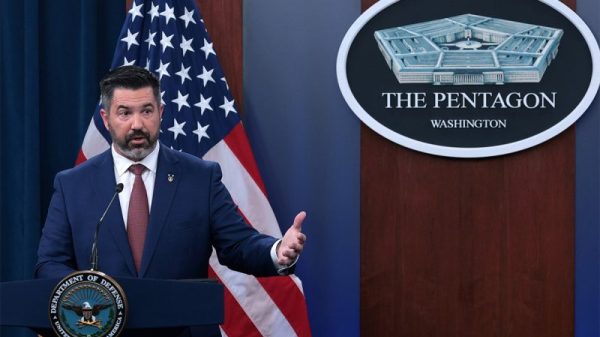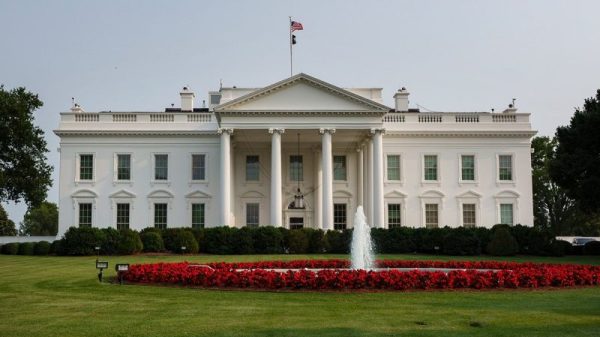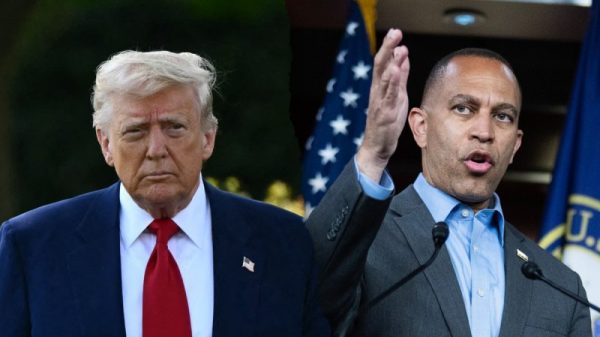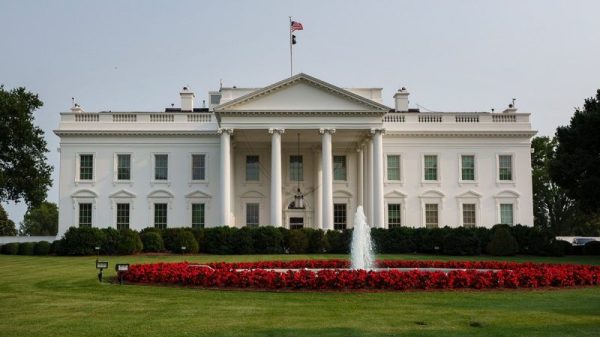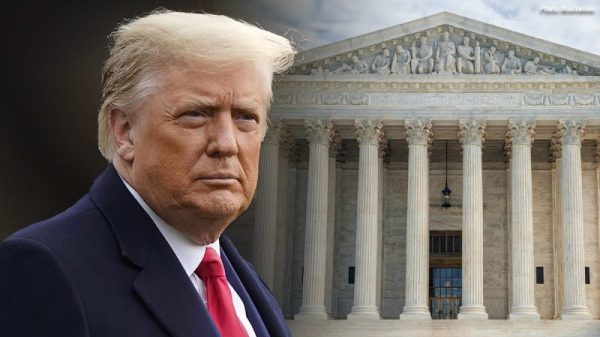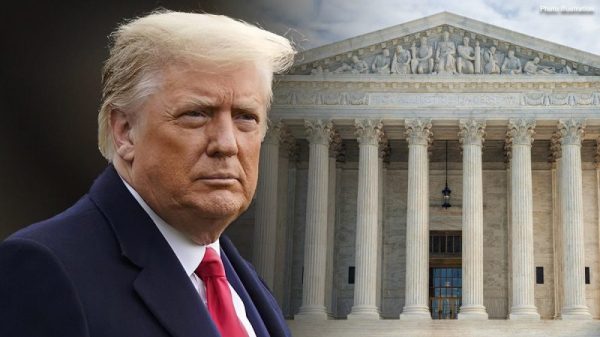House Republicans released a sweeping plan late on Sunday to curb who gets Medicaid coverage and roll back former President Joe Biden’s electric vehicle (EV) mandate, among other measures.
The Energy & Commerce Committee, which has broad jurisdiction, including over federal health programs, telecommunications and energy, was tasked with finding at least $880 billion in spending cuts to pay for other priorities in President Donald Trump’s ‘big, beautiful bill.’
Committee Chairman Brett Guthrie, R-Ky., told House Republicans on a lawmaker-only call on Sunday night that the panel had found ‘north of $900 billion’ in savings, however – a significant victory for House GOP leaders who weathered attacks from Democrats about significant cuts to welfare programs like Medicaid.
However, Republicans largely avoided the deep cuts to Medicaid that were sought by some fiscal hawks in the House GOP Conference, a win for moderate Republicans who were more politically vulnerable to Democratic attacks over the issue.
The legislation would put a new 80-hour-per-month work requirement on certain able-bodied adults receiving Medicaid, aged 19 through 64.
It would also put guardrails on states spending funds on their expanded Medicaid populations. The Affordable Care Act (ACA) allowed states to expand Medicaid coverage to adults who make up to 138% of the poverty level.
More specifically, states that provide Medicaid coverage to illegal immigrants could see their federal Medicaid reimbursement dollars diminished, putting more of that cost on the state itself.
The bill would also require states with expanded Medicaid populations to perform eligibility checks every six months to ensure the system is not being abused.
Guthrie told House Republicans on a Sunday night call that the legislation was ‘ending’ the former Biden administration’s EV mandate. He said $105 billion in savings could be found in ending the mandate to have EVs account for two-thirds of all new car sales by 2032.
Other savings are found in rescinding unspent funds in a variety of Biden green energy tax programs established via the Inflation Reduction Act (IRA).
It is not a full repeal of the IRA, however, as some conservatives had been pushing Republicans to do.
That had been another point of contention ahead of the bill’s release, with GOP lawmakers who have businesses in their districts that have benefited from the green energy subsidies pushing back on significant cuts.
On the other end of the energy divide, the bill would also boost Trump’s non-green energy goals by establishing a fast-tracked natural gas permitting route. The permit applicant would be required to pay $10 million or 1% of the project’s cost to be on the expedited track.
There is also a victory for social conservatives in a measure that would make certain large abortion providers ineligible for Medicaid funding. That measure was pushed by House Speaker Mike Johnson, R-La., himself, and was backed by anti-abortion groups like Susan B. Anthony Pro-Life America.
However, it could run into opposition from moderate Republicans – Rep. Mike Lawler, R-N.Y., called the provision ‘problematic’ and warned colleagues they were ‘running into a hornet’s nest’ on the matter in the Sunday night call.
The legislation does provide exceptions for places that provide abortions in cases of rape, incest, or when the life of the mother is at stake. It’s not necessarily clear, however, if providing voluntary abortions would disqualify those locations.
The Energy & Commerce Committee’s legislation accounts for the bulk of Republicans’ $1.5 trillion to $2 trillion spending cuts they are hoping to find in the budget reconciliation process.
House Republicans currently have a razor-thin three-vote margin, meaning they can afford to have little dissent and still pass anything without Democratic support. They are hoping to do just that, with virtually no Democrats currently on board with Trump’s massive Republican policy overhaul.
The budget-reconciliation process lowers the Senate’s passage threshold from 60 votes to 51, lining up the House’s own simple majority threshold.
Reconciliation allows the party in power to effectively skirt the minority and pass broad pieces of legislation – provided they address taxes, spending or the national debt.
Trump wants Republicans to use the maneuver to tackle his priorities on the border, immigration, taxes, defense, energy and raising the debt ceiling.
To do that, several committees of jurisdiction are working on their specific portions of the bill, which will then be put together in a massive vehicle to pass the House and Senate.
GOP leaders hope to have that final bill on Trump’s desk by Fourth of July.










